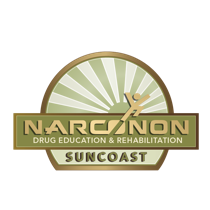Strategies for an Effective Intervention

Addiction affects millions of people in the United States alone. It can be an incredible struggle for the individual and those around them, but proper addiction treatment can help them achieve sobriety. Unfortunately, many of those struggling are not willing to seek treatment themselves, or they may not think they have an issue. This is where loved ones may have to consider staging an intervention to convince the individual to attend treatment.
We put together this guide to help loved ones understand intervention and effective strategies for conducting one.
Breaking Down the Intervention Definition
Before going any further, we should have a solid intervention definition as a basis. An intervention is a planned process by family and/or friends to confront a loved one about their addiction and its effects and hopefully convince them to attend treatment. It may also involve a professional, such as a counselor or an intervention professional, otherwise known as an interventionist.
It can include topics like the destructive behaviors of their addiction, how it has affected those around them, clear treatment options and goals, and what the loved ones will do if they refuse.
Be Compassionate During Addiction Intervention
In most cases, coming at the struggling individual with aggression or pure criticism does not have the best results. This often leads to the individual closing off or becoming defensive, which closes the door for any progress.
During an intervention, express concerns compassionately. Let the person know it comes from a place of love and care. A good way to do this is to have friends and family members write letters beforehand and then read them during the intervention.
Remain Supportive During Interventions
An intervention should also show the struggling person that there are people who support them in getting treatment and overcoming addiction. It should be clear that the intervention is not meant to be an hour-long session of telling them how horrible they have been or purely criticizing them. Instead, letters should be carefully written to express feelings while making it clear they want to see the individual recover.

Recruit a Professional
It is essential to conduct an intervention as smoothly as possible, which may mean hiring a professional. A professional interventionist has conducted many interventions before, and they know the ideal strategies, timing, and formats for the best results.
Ultimately, they can help guide the family through the whole process, answer questions, construct an appropriate plan, and help conduct the intervention.
Don’t Lose Hope
Unfortunately, an intervention is not guaranteed to make the addict go to treatment. In some cases, the individual may still think they don’t have a problem, or they could feel threatened by everyone gathered around them. This is not to say that it is the family’s fault or that they didn’t do everything as correctly as they could.
The simple truth is that everyone is different, and there is no uniform way to convince someone that their addiction has destructive consequences. It may take some time for the intervention to sink in before they agree, or it may even take multiple interventions.
The most important thing is not to lose hope and continue trying to get the individual into treatment. Just make sure the family maintains their boundaries as well and that no one becomes complacent with the behavior.
Narconon Suncoast Can Help Those Struggling with Addiction
The Narconon program continues to help many people finally achieve sobriety, and we would like to do the same for you or your loved one. Our graduate testimonials remind us every day why we continue to help those struggling. If you have any questions about our program, call us or request a free info pack on our website.


